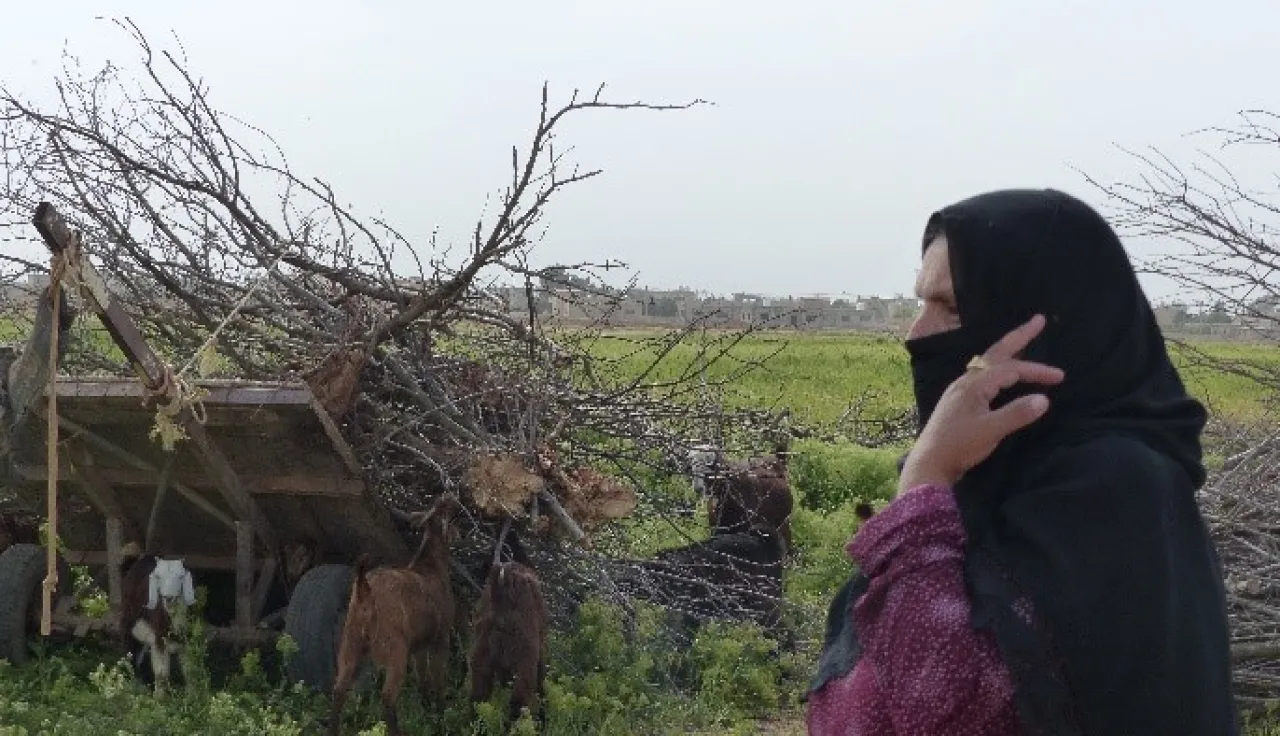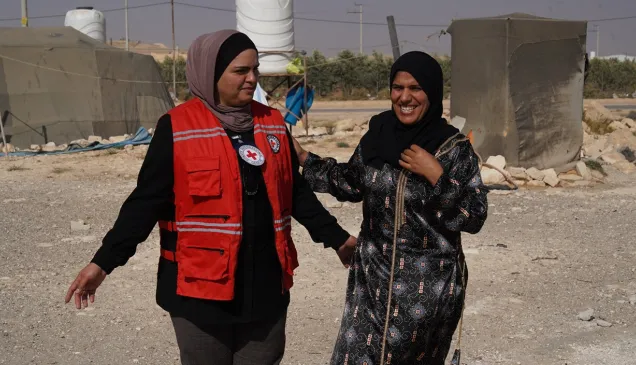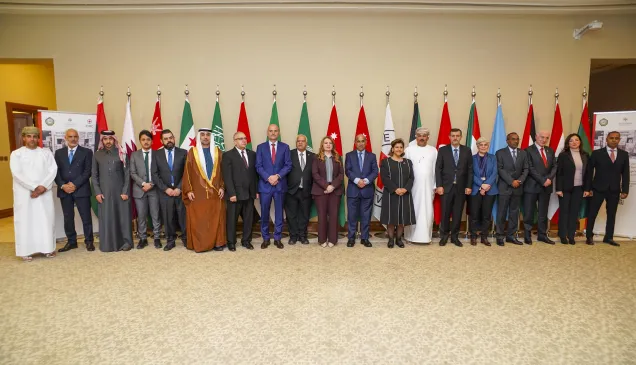Jordan: For Abla, ICRC’s cash support has come at the right time

“Since the COVID-19 restrictions were introduced,
I have not been able to sell my goat’s milk to the usual buyer.
I have tried selling to my neighbors, but they only buy in small quantities.
This emergency cash the ICRC has brought for me has come at the right time, thank you!”
We had been driving on Za’atari’s main road, in north Jordan for a while and soon turned off at the designated junction that leads to our destination. Soon, we arrived at an area with much greenery that was set back from the main highway and came to a stop. As we stepped out of the vehicle, Abla received us warmly in front of the tent where she lives. While exchanging pleasantries, her husband also came to greet us then went back to continue watching over the livestock. We proceeded to hand over the cash to Abla and noticed that her daughter had been looking at us, probably wondering who these visitors were. She remained behind the small fence that served as a door to the tent.
I’m from Homs, Feruza Street in Syria. We saw the destruction of our home—it was completely shattered. We then decided to come to Jordan to save our lives and we have been doing well here. Thank God we did not face any problems when we arrived, no violence from Jordanians, nothing.
It was obvious that she saw life in Jordan as comfortable.
Abla and her husband have seven children. Two of her daughters were born in Jordan and she is now pregnant. “I am pregnant again at 39 years old,” she said smiling, as she proudly touched her belly.
“I used to have a cow and calf in Syria and we were selling milk every day,” she recalled. Livestock rearing was their main livelihood in Syria, where they kept goats and cows.
“It was not easy at the beginning when we arrived in Jordan,” Abla went on. She was apparently not comfortable dealing with money, explaining that the unfamiliar currency was confusing. To illustrate her point, she explained that she used to give 1 JOD to her kids to buy small snacks and found out later that the amount was worth more than she thought (with the same amount they could buy bread for the whole day).
“When we arrived in Jordan, we were struggling with the cost of living but now the situation is better, better than in Syria. I hear that prices are very high in Syria and are worse than here,” she said. She has a sister and a brother back there. From what she heard, people are finding it difficult to cope. “Compared to Syria, it’s better here. I still hope to see them, but I don’t know how because I have small kids and they are used to live in Jordan. I hope that they can come to visit me, or I can go to visit them,” she added.
Our conversation with Abla continued, despite the appearance of two of her children who emerged from the tent, half asleep. “With the curfew, I stay at home and we go to buy what we need when we are allowed to. Anyway, you see, we are far from the others, thank God everything is fine, and the kids are sleeping inside the tent,” she said.
“I used to have two goats. Then we bought nine more, all of them gave birth so now we have 22,” she said beaming with pride. She and her husband are planning to sell the male offspring soon.
“Since the COVID-19 restrictions were introduced, I have not been able to sell my goat’s milk to the usual buyer. I have tried selling to my neighbors, but they only buy in small quantities,” she explained. The family needed to use the small savings they had for household essentials over the past weeks rather than using money from the sale of the milk. “This emergency cash the ICRC has brought for me has come at the right time, thank you!”
“We have chicken also, so we eat fresh eggs every day as well, thank God we are good,” she added.
We inched closer to the livestock and as we did so, her husband starts a conversation. “You know, it’s not easy to breed goats as they need a lot of patience. I am spending most of the day, especially early morning and afternoon, with the animal for grazing. Our sons, they can’t take care of the animals. This generation is different from ours, they don’t have the same patience as us and they don’t take care of the goats like us, their hearts are not in this way of generating an income,” she said.
The ICRC began a cash transfer programme (CTP) in 2013 for extremely vulnerable Syrian refugee families living in host communities. This allows them to meet some of their essential needs through monthly cash disbursement. The service was also extended to beneficiaries of the ICRC’s Micro Economic Initiative (MEI) like Abla because the introduction of COVID-19 restrictions limited their ability to generate income. Currently, there are 720 refugee families in Jordan enrolled in the CTP.



